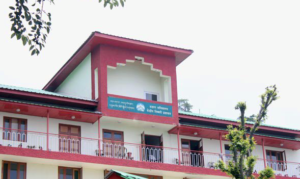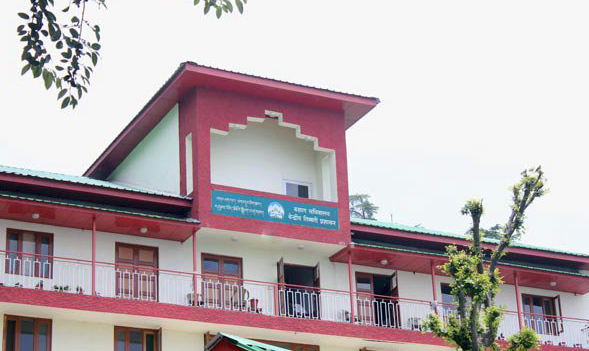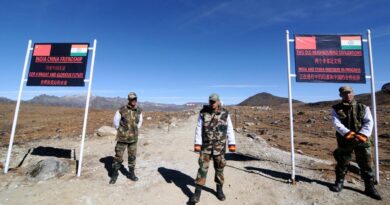Kashag cites growing trust deficit, under performance and insubordination as key reasons to replace Penpa Tsering
By Lobsang Tenchoe
DHARAMSALA, Nov 18: The Kashag (Cabinet) of the Central Tibetan Administration(CTA) today issued a 10-point clarification on its decision to replace Penpa Tsering from the Office of Tibet in Washington, CTA’s mission in North America.
“Despite Kashag’s explanation made on November 9 to not provide further clarification on the replacement of North America Representative, the general public including those with high regard for CTA requested the need for more clarification on Kashag’s decision,” the Kashag stated in its circular issued earlier today.
“In the case of a permanent civil servant of CTA, there is no such precedent to provide any explanation. But given Representative Penpa Tsering’s profile as a public figure and by the virtue of him not being a permanent civil servant of CTA, the Kashag following further deliberation decided to provide the following points for transparency and accountability purposes,” the Kashag added.
Kashag’s 10-point clarification over its decision to replace Penpa Tsering from the Office of Tibet in Washington, CTA’s mission in North America are as follows;
 1) At the time of his appointment as the North America Representative, Penpa Tsering said he doesn’t hold any grievances against Sikyong Lobsang Sangay and that the election phase was over. He also said now that Sikyong had placed trust in him, he would deliver his best and fulfill the objectives of Kashag. Unfortunately, Representative Penpa Tsering was unable to transition from an elected representative to serving as a representative of the Central Tibetan Administration. This created a relationship characterized by lack of confidence and trust between him and the Kashag. The Kashag therefore made the decision to replace him based on three reasons: a growing trust deficit, under performance and insubordination.
1) At the time of his appointment as the North America Representative, Penpa Tsering said he doesn’t hold any grievances against Sikyong Lobsang Sangay and that the election phase was over. He also said now that Sikyong had placed trust in him, he would deliver his best and fulfill the objectives of Kashag. Unfortunately, Representative Penpa Tsering was unable to transition from an elected representative to serving as a representative of the Central Tibetan Administration. This created a relationship characterized by lack of confidence and trust between him and the Kashag. The Kashag therefore made the decision to replace him based on three reasons: a growing trust deficit, under performance and insubordination.
2) During Representative Penpa Tsering’s term as the North America Representative, particularly between August 2016-April 2017, many important developments occurred in the US, especially in light of Donald Trump’s election victory, forming of the new Government in the United States, President Trump’s first meeting with President Xi Jinping, etc. However contrary to what is customary, there were no submissions of formal reports, confidential or otherwise from the DC office to the DIIR office on these major developments. This is a case of under performance.
3) In October 2016 Representative Penpa Tsering publicly announced Kunga Tashi will be posted in New York as the Chinese Liaison Officer and Coordinator. He did not consult or seek the approval of the Kashag or DIIR. This is in violation of CTA rules and regulations, and a clear case of insubordination to Kashag and DIIR. After this incident, the Kashag issued the first advisory through DIIR in October 2016 recommending that the Representative properly abide by CTA protocols and procedures.
4) When the Chinese President Xi Jinping met with President Trump in April 2017 in Florida, Dolgyal groups organized a welcome reception. This caused concern for Kashag as His Holiness’s visit to US was scheduled in June. But the Representative didn’t provide any information and the Kashag instead learnt of the development from other sources. For not following DIIR’s mandatory standing order to report on Dolgyal-related activities pertaining to His Holiness’s security and for his under performance in this aspect, the Kashag had to serve a second advisory to Representative Penpa Tsering in April 2017.
5) One of the primary purposes of relocating the Office of Tibet from New York to Washington, DC was to build direct relationship with the US Congress and the US Administration. Despite providing advance notice ahead of Sikyong’s DC visit to schedule meetings with the Speaker of the House, or the Majority Leader of the Senate or even with members of the Senate Foreign Relations Committee the Representative was unable to schedule any such meetings for Sikyong. This has been a case of performance deficit by the Representative.
6) When news reports of a proposed 2018 White House budget zeroing out key funding programs for Tibetans surfaced in May 2017, the Representative had already completed nine months in office. According to a standing directive by Kashag issued to Offices of Tibet, raising funds is one of the key responsibilities of the OoT Representatives. Demonstrating indifference and negligence, the current Representative had stated that tracking of US government budget was not the Representative’s main responsibility and that it was the responsibility of the International Campaign for Tibet (ICT) to handle the issue.This response alarmed the Kashag and raised questions on whether Representative Penpa Tsering was deliberately disengaged and thereby undermining CTA’s efforts to raise funds from the US government. Such funding cuts could have significant negative impacts by placing major projects that are already implemented in India and Nepal in jeopardy. Moreover, it would send a major negative political message around the world.
7) In June 2017, Representative Penpa Tsering forwarded an urgent communication to Kashag reporting a notice served by the bank in DC on immediate closure of five accounts of DC Office of Tibet. The Representative recommended that the office funds be withdrawn immediately as there was risk of deposits being frozen. Accordingly, the funds were dispersed. It was later learnt that prior to making the recommendation, Representative Penpa Tsering had never approached the bank authorities and when he belatedly approached the Assistant General Manager of the bank, the bank agreed to keep the accounts active. However, the damage was done. The Representative’s negligence and failure to conduct the simplest of due diligence caused unnecessary hassle and complications.
At the meeting of the Representatives of the Offices of Tibet held in Brussels in September 2016, Representative Penpa Tsering asked whether USD 1.5 million dollars from Tibet Fund used to purchase DC office building was a loan. In the presence of all other Representatives, Sikyong clearly explained that it was not a loan, but an amount that Tibet Fund had contributed and did not expect to be paid back. Despite Sikyong’s clarification and without consulting and seeking guidance and approval from Kashag and DIIR, Representative Penpa Tsering reported to CTA auditors that a loan payment for OoT DC office was outstanding. All the funds received and spent towards the purchase of the Office of Tibet building in Washington, DC is clearly documented, audited and fully accounted. CTA has all the relevant documents. This incident again demonstrates Representative Penpa Tsering’s lack of trust in Kashag’s leadership and led the Kashag to serve the final advisory in July 2017.
9) Despite Representative Penpa Tsering’s assurance to the public that he doesn’t hold any grievances against Sikyong Lobsang Sangay, his actions unfortunately have been the contrary. It later came to light that during the CTA diplomacy training in July 2016 in which Penpa Tsering took part as the Representative designate, he tried hard to convince a female Kalon nominee against working with Sikyong stating that doing so would jeopardize the individual’s career. The individual had to put up with a four-hour session of Representative Penpa Tsering making disparaging remarks about Sikyong and trying to foil Sikyong’s attempts to appoint the only female Kalon. It also became increasingly apparent that making disparaging remarks about Sikyong and the Kashag had become a routine not only in DC area, but in many places where he travelled. This was viewed as unbecoming of a Representative who is expected to positively support and advocate for the initiatives of the Kashag. Such conduct caused trust deficit between Kashag and the North America Representative.
10) No one incident triggered the Kashag’s decision. However, within a very short period of time, there were multiple lapses and an erosion of trust and confidence. The Office of Tibet in Washington, DC is one of the most important offices of CTA. The CTA’s and the collective interest of the Tibetan people demands that this important office be led by someone that has the trust and confidence of the Tibetan leadership. The Kashag, after careful deliberation and successive meetings unanimously decided to replace the Representative because of the three reasons: growing trust deficit, under performance and insubordination. Like at the time of Penpa Tsering’s appointment as the Representative, the Kashag again followed similar procedure to replace him as per the provisions in Article 1 (iii) of the Tibetan Charter.
“Given the urgency of the situation, the timing of replacement was also carefully considered. The US Congress will work on approving the 2018 budget in December. President Trump’s post China visit will have crucial implications for US’ Tibet and China policy. The appointment of Special Coordinator for Tibetans has been pending for almost a year. Also, the Kashag is planning several important initiatives in 2018 where the participation and support of Tibetans and our friends in North America will be critical,” the circular stated.
After issuing its 10-point clarification, the Kashag said, “We hope everyone will now have a better understanding and appreciation of the Kashag’s decision. The challenges confronting the Sikyong and the Kashag to realizing the aspirations of the Tibetan people are formidable. CTA officials holding important responsibilities like leading the Office of Tibet in Washington, DC must have the confidence and trust of the Kashag so that the Tibetan leadership can be successful.”




